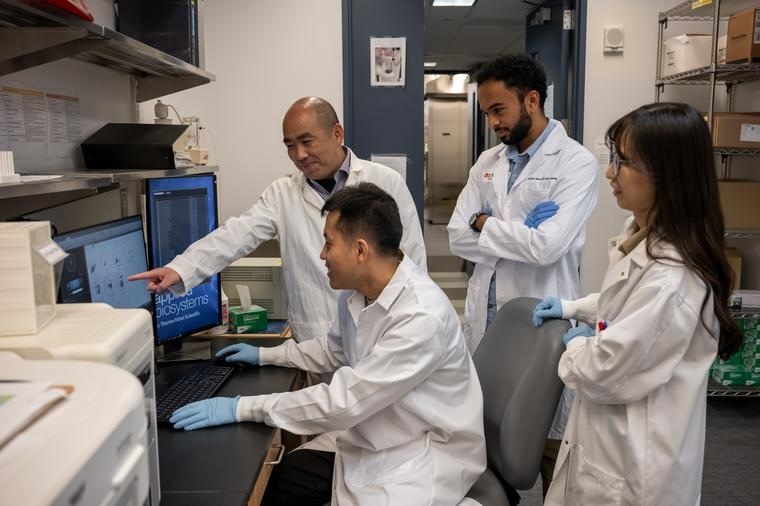Our Jie Sun, PhD, and colleagues have discovered how faulty immune system interactions are causing persistent Long COVID lung problems, and their work suggests that existing arthritis drugs may help.
Right now there are no good treatments for what is known as "post-infection lung fibrosis." But by better understanding these stubborn lung problems, we're closer to being able to treat them effectively.
Professor Sun and his collaborators found that faulty interactions of two types of immune cells, CD8+ T cells and macrophages, cause the macrophages to drive damaging inflammation even after the initial COVID-19 infection has passed.
This cycle of inflammation, injury and fibrosis can be broken, the research suggests, by drugs such as baricitinib and anakinra. These drugs are already used to treat the harmful inflammation seen in rheumatoid arthritis and alopecia, a form of hair loss.
More research will need to be done to determine if the drugs can be repurposed for lung fibrosis. But it's a promising, much-needed lead. Further, the findings may lead to new treatments for lung scarring caused by other viruses, the researchers say.
“Tens of millions of people around the world are dealing with complications from long COVID or other post-infection syndromes,” Professor Sun said. “We are just beginning to understand the long-term health effects caused by acute infections. There is a strong need for more basic, translational and clinical research, along with multi-disciplinary collaborations, to address these unmet needs of patients.”
